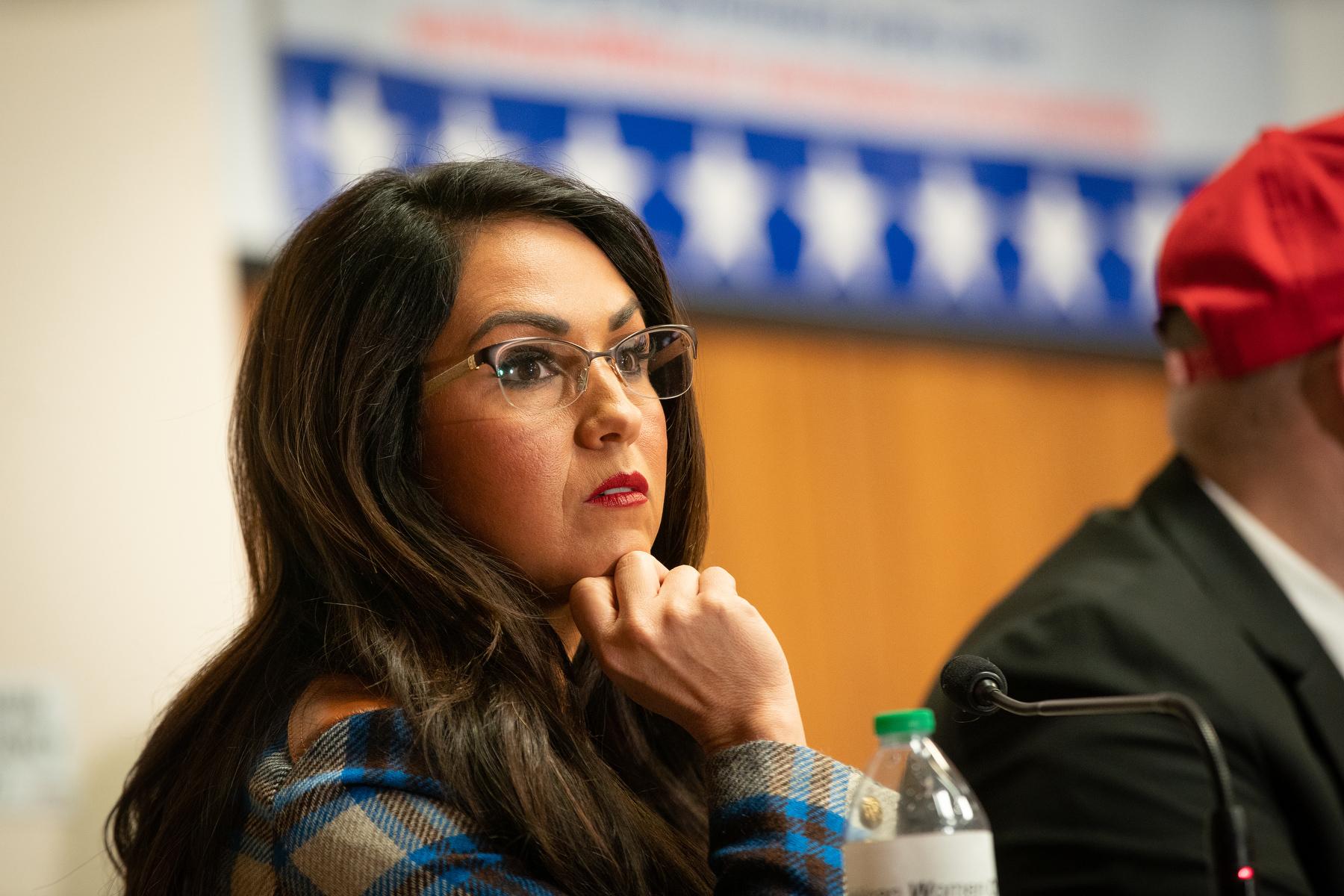
Rep. Lauren Boebert will not seek the special election nomination to finish out Rep. Ken Buck’s term in Colorado’s 4th Congressional District.
Going down that path would have required her to resign her current seat early, leading to another special election in the 3rd Congressional District, and leaving an even smaller Republican majority in the chamber.
“I’m not leaving my constituents,” Boebert said Wednesday. She moved out of the district in January to run in CO-04.
In a statement released later, she added, “I will not further imperil the already very slim House Republican majority by resigning my current seat.”
Gov. Jared Polis said he plans to hold the vacancy election on June 25, the same day as the Colorado primary.
Boebert had nothing good to say about any of it.
“Forcing an unnecessary Special Election on the same day as the Primary Election will confuse voters, result in a lame duck Congressman on day one, and leave the 4th District with no representation for more than three months. The 4th District deserves better,” she said in her statement.
While her comments ended speculation over Boebert’s plans, they haven’t tamped down speculation over how Buck’s early exit will impact her campaign to switch districts, swapping the Western Slope and Southern Colorado for the Eastern Plains and the Front Range.
Whoever gets picked as the Republican candidate for the special election will get an automatic leg up, if they’re also currently running in the primary. For several weeks they’ll get the extra attention of running as the special nominee and will appear on the June 25, 2024 ballot twice: as the nominee for the special against the Democratic candidate and also in the primary, where there is a very crowded field.
Alluding to the disadvantage she could face by passing up a chance at the nomination, Boebert alleged, “The establishment concocted a swampy backroom deal to try to rig an election I’m winning by 25 points.”
She was pointing to a Kaplan Strategies poll from February that found her with 32 percent support from Republican primary voters in the district, 25 points more than her nearest challenger. She comes to the race with national name recognition and a sizable campaign cash advantage.
But that same poll also had bad news for Boebert. It found that she has significantly higher unfavorables than her opponents, and of the people who don’t support her, 67 percent said they would not consider voting for her. The poll also did not include Jerry Sonnenberg, a candidate many consider one of her main rivals in the race.
Sonnenberg, who is a current Logan County Commissioner and a former Colorado state senator and representative, has the backing of three of the past holders of the seat: Cory Gardner, Wayne Allard, and Hank Brown.
Who is seeking the Special Election nod?
Sonnenberg is expected to seek the special election nomination from the vacancy committee.
He’s not alone. Many of the other primary candidates have indicated they will try for the nod, with the hope of capitalizing on the resulting tailwinds to get them to the general election.
Deborah Flora, a former radio host and education advocate, is also going to run for the nomination, as is state Rep. Richard Holtoforf of Akron, although he blasted Buck for leaving his position early.
“This is Ken Buck mucking up the process. And he's the former state chair, so he knows exactly what he's doing,” Holtorf told CPR News. “He knows exactly what he's doing and when he's doing it and how he's doing it.”
State. Rep. Mike Lynch of Wellington said he would also run for the vacancy seat but doesn’t plan to campaign for it.
Boebert’s decision to remain in Congress also ended any speculation about whether there would have to be a second special election to fill out the remainder of Boebert’s term in CO-03.
That wouldn’t have been in the interests of the national Republican party. The 3rd Congressional District is the state’s largest geographically, spanning from Pueblo to Grand Junction, and is much more politically competitive than CO-04.
Last cycle, Boebert narrowly won by 546 votes, and she was facing a tough reelection fight before deciding to switch districts.
Republican political consultant Ryan Lynch said Republicans would not want to risk losing a CO-03 vacancy election, giving Democrats a leg up going into the general election.
“There is 40 years of no precedent in Colorado,” said Lynch, who is not related to Rep. Mike Lynch. “But in other states, we’ve seen an outnumbered party win special elections simply because turnout is considerably lower and a candidate or a party with a strong ground game can turn out enough votes to win it.”
Democrats already have a well-funded candidate running in the third district, Adam Frisch. Democratic state party chair Shad Murib said he’s seen Democrats win special elections in much less favorable environments.
“Democrats have won special election after special election in places we had no business winning all across the country,” he said.
However, with Boebert pledging to stay in her seat through the end of Congress, the energy in the third district will remain focused on winning the general election in the fall.
- Rep. Ken Buck to leave office early
- Who’s running to replace Ken Buck in Colorado’s Fourth Congressional District?
- Boebert says she is switching congressional districts for the 2024 election. The move will put her in a safer Republican seat
- Colorado GOP Congressman Ken Buck not seeking re-election next year









